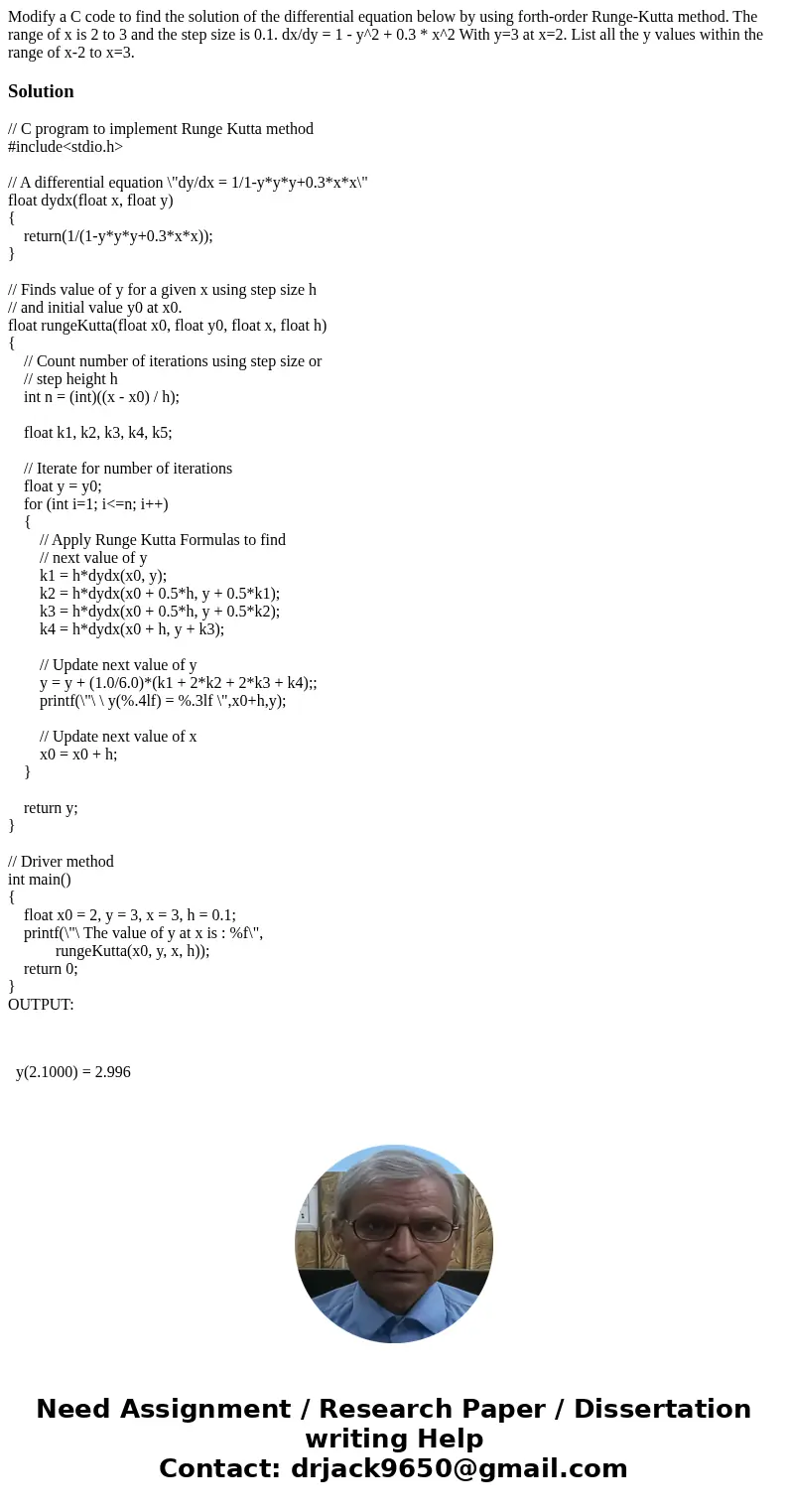Modify a C code to find the solution of the differential equ
Solution
// C program to implement Runge Kutta method
#include<stdio.h>
// A differential equation \"dy/dx = 1/1-y*y*y+0.3*x*x\"
float dydx(float x, float y)
{
return(1/(1-y*y*y+0.3*x*x));
}
// Finds value of y for a given x using step size h
// and initial value y0 at x0.
float rungeKutta(float x0, float y0, float x, float h)
{
// Count number of iterations using step size or
// step height h
int n = (int)((x - x0) / h);
float k1, k2, k3, k4, k5;
// Iterate for number of iterations
float y = y0;
for (int i=1; i<=n; i++)
{
// Apply Runge Kutta Formulas to find
// next value of y
k1 = h*dydx(x0, y);
k2 = h*dydx(x0 + 0.5*h, y + 0.5*k1);
k3 = h*dydx(x0 + 0.5*h, y + 0.5*k2);
k4 = h*dydx(x0 + h, y + k3);
// Update next value of y
y = y + (1.0/6.0)*(k1 + 2*k2 + 2*k3 + k4);;
printf(\"\ \ y(%.4lf) = %.3lf \",x0+h,y);
// Update next value of x
x0 = x0 + h;
}
return y;
}
// Driver method
int main()
{
float x0 = 2, y = 3, x = 3, h = 0.1;
printf(\"\ The value of y at x is : %f\",
rungeKutta(x0, y, x, h));
return 0;
}
OUTPUT:
y(2.1000) = 2.996
y(2.2000) = 2.992
y(2.3000) = 2.988
y(2.4000) = 2.984
y(2.5000) = 2.979
y(2.6000) = 2.975
y(2.7000) = 2.971
y(2.8000) = 2.966
y(2.9000) = 2.962
y(3.0000) = 2.957
The value of y at x is : 2.957478sh-4.3$

 Homework Sourse
Homework Sourse